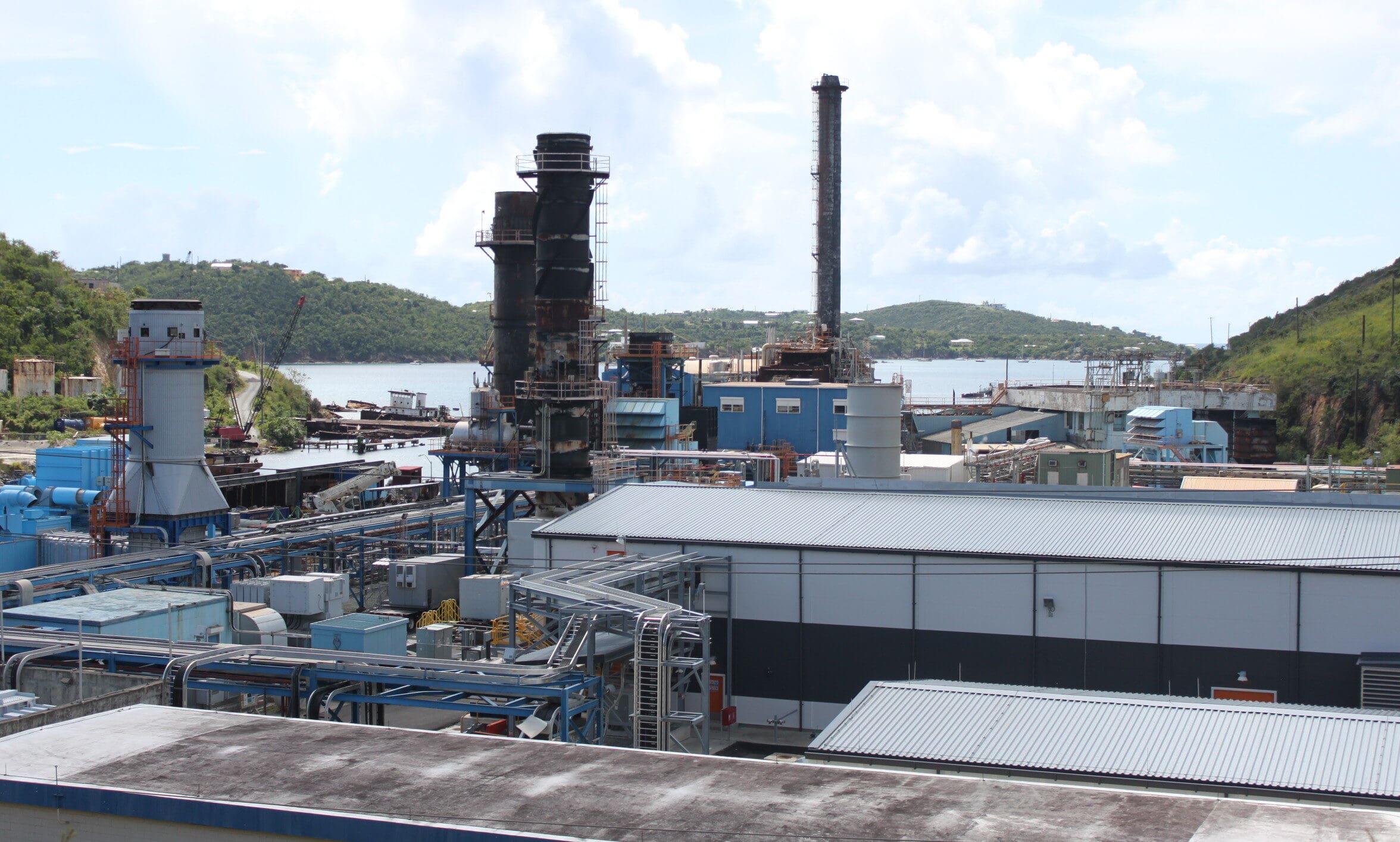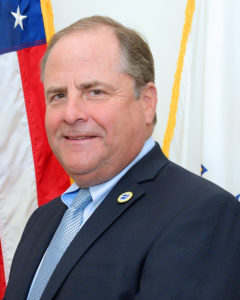
Editor’s Note: This article is the first in a four-part series looking at the the V.I. Water and Power Authority, its past failures and challenges, and its more recent efforts to build a more affordable, reliable and modern grid.
The V.I. Water and Power Authority, established in 1964, has become such a part of the Virgin Islands’ culture that most residents can understand its name as a part of speech. And if you have been WAPAed, it is not a good thing. It is like being slapped.
WAPA’s history has shined with dreams of transition and efficiency goals. But besides the everyday tasks of supplying residents with expensive water and electricity, most have been ephemeral. And the supply of electricity up to this day is sporadic, with regular outages and a long recovery from the twin Category 5 hurricanes of September 2017, which affected about 95 percent of the territory’s grid.
Storms and the breakdowns of poorly maintained equipment are just one part of WAPA’s problem. The loss of electricity through theft, and water through leaks, has dominated most outside studies of the utility. Then, flowing out of these problems, is the granddaddy of WAPA’s problems — finances. Again, the cause has many sources — the utility’s addiction to high-cost fuel, government agencies not paying their bills, a Public Services Commission reticent to grant rate hikes, and the utility’s under-collection of some accounts.
Every administration since Gov. Charles Turnbull, which this writer has written of or been part of, has had people dedicated to solving these problems, but success has been limited. A few large alternative energy projects have come online — Spanish Town on St. Croix in 2013, and the Cyril E. King Airport on St. Thomas in 2011. Energy Office programs have brought solar, wind generation, and energy-efficient appliances to many residents. While the territory was once 100 percent dependent on high-cost fossil fuel, now it is under 90 percent dependent, and that figure may be dropping near 80 percent or lower now. Gov. John de Jongh Jr. set the goal of reducing fossil fuel dependency to 60 percent by 2025.
But small and large projects have gone awry.
Million-dollar generators expected to turn waste into energy sit idle for years, and solar farms get torn up in the first hurricane that hits.
The biggest boondoggle of all might have been the propane conversion. A project that went so badly that senators have called for a criminal investigation. The appeal of that conversion to the head of WAPA at the time, Hugo Hodge Jr., was that WAPA had to put no money upfront. Unfortunately, the deal after a few years started looking more like a payday loan instead of a good investment.
Alternative energy projects have a long history. In 2003 Caribe Waste Technologies promised that the Anguilla and Bovoni dumps would be shut down permanently. No new landfills would be required in the territory. Its project would generate “green” electricity from a renewable energy source — the territory’s waste. It would help reduce WAPA’s reliance on expensive foreign oil and help reduce climate change.
But nothing happened.
In 2011 the Alpine Energy Group promoted a plan to turn waste into pet coke, which could then be burned to provide electricity. Again, offering solutions to two of the territory’s biggest problems. Also, at this time there was a proposal to grow a certain type of grass on the south shore of St. Croix that could be burned as fuel to generate electricity.
But nothing happened.
Before the alternative energy promises, however, another solution was being proposed to solve WAPA’s problems: privatization.
In 1999 there was a proposal to sell 81 percent of the Water and Power Authority to Southern Electric Co. The argument was that the government was broke and would benefit from the selling price of $76.8 million. An editorial in The Daily News stated, “We believe the time is right — and has been for years — to remove WAPA from public dependency.”
In another editorial, Glen J. Smith of the St. Thomas-St. John Federation of Teachers said the union opposed the deal because “the employees at WAPA realize that corporate giants usually treat their workers with disdain within a few months after assuming ownership. Employees will be transferred from other plants while qualified locals are denied promotions and upward mobility.”
He added, “If Southern Electric can envision WAPA as a viable economic institution for its shareholders, why is our territory blind to those facts? Why should the profits of WAPA be deposited into the pockets of others instead of our territorial government?”
Nothing happened.
Back to the financial problem.

Testifying to the Legislature in October 2019, then WAPA Executive Director Lawrence Kupfer said its “current financial situation is best described as ‘challenged’ because, very simply, the authority is currently not collecting enough revenues to sustain its operations.” He added, “Governmental customers have historically not paid their WAPA bills in a timely manner, thereby causing WAPA’s outstanding government receivables to grow as much as $30 million.”
In 2009 an Interior Department Inspector General report stated the obvious: “The issues facing WAPA in its ability to provide efficient service at an efficient cost are not easily rectifiable.”
The report predicted correctly, “Unless the Virgin Islands moves quickly to develop all possible alternative energies and recognizes that updating and maintaining WAPA’s power plants is of the highest priority, power consumers will continue to endure unnecessarily high energy bills.”
A political component also exists in the operation of WAPA. WAPA has a governing board of nine members, all appointed by the governor, with six requiring the consent of the Legislature. The Senate, through legislation and the courts, has tried recently to restructure the board “to afford greater independence and establishes professional criteria for those who serve.”
This effort and other efforts by Virgin Islanders to make WAPA efficient and less expensive will be covered in The Source’s upcoming series on the authority.





